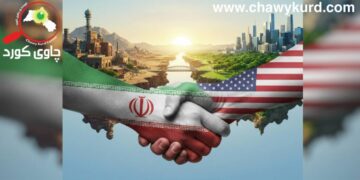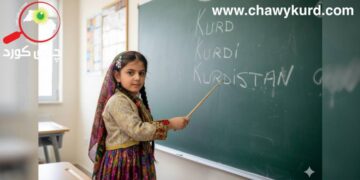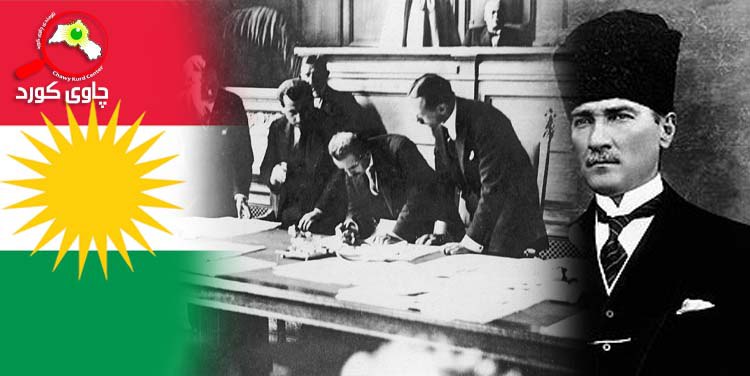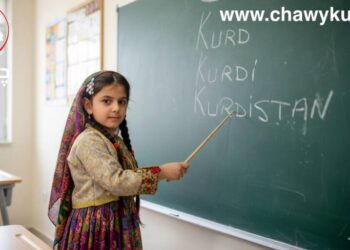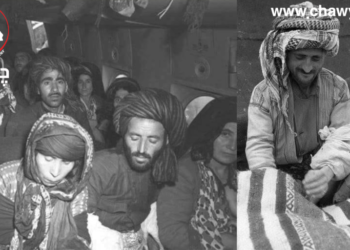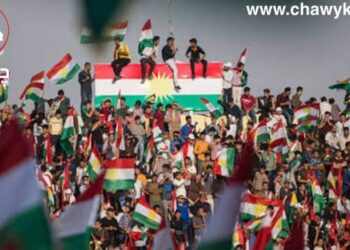Sabiha Sertel’s testimony should be seen in the light of her subsequent commitment to the communist cause. But it is a fact that there were landowners from the south-east in the second GNA: two deputies from Malatya are identified as aga,72 and none as a tribal leader, a designation which had been applied to several deputies in the first Grand National Assembly.73 The main point at issue in the deliberations of the constitutional committee and then of the GNA, when the draft constitution was debated, was the power of the president, Mustafa Kemal, and matters which had a bearing on it. Local government, within whose structure Kurdish ethnicity was to have been accommodated, attracted no attention. According to Professor Suna Kili, ‘there was very little discussion on the section of the Constitution which was devoted to the administration of the provinces’.74 In the GNA debate one deputy, Halis Turgut of Sivas (who was hanged in 1926 for his alleged complicity in the plot to assassinate Mustafa Kemal in Izmir)75 complained that provincial councils (modelled on the French conseils generaux des departements) had no real powers, and that provinces should be able to run their own affairs.76 It made no difference. The term ‘autonomy’ (muhtariyet) was dropped from the provisions of local government; so was the term §ura for council. The six articles on local government in the 1921 constitution were reduced to two brief articles in 1924: article 90 ‘Provinces, cities, towns and villages are legal entities’, and article 91, ‘Provincial affairs are administered in accordance with the principles of extending (delegated) powers and distiguishing between functions [tevsi-i mezuniyet ve tefrik-i vezaif esasi\’ 77 The constitution was adopted by a near-unanimous vote of the Assembly on 20 April 1924.78
At the time there was no official opposition in the Assembly, most of whose members had been hand-picked by Mustafa Kemal. But this had not prevented successful moves to limit the president’s powers in such matters as the dissolution of parliament and sending back laws for reconsideration. One of the deputies who spoke against giving the power of veto to the president was the lawyer Feridun Fikri (Diisunsel), deputy for the predominantly Kurdish province of Dersim,79 who later became a member of the opposition Progressive Republican Party.80 But neither he nor anyone else referred to the idea, discussed by Mustafa Kemal a year earlier, of granting predominantly Kurdish provinces the right to self-government within the framework of devolved local government. The plan had completely dropped out of the public debate. Why should this have been so?
The Mosul question was still unresolved, and, therefore, the need to secure the support of the Kurdish population of northern Iraq still remained, at least in theory. But as has been noted, the izmit briefing in January 1923 suggests that Mustafa Kemal had written off Mosul. One could say cynically that the question of Kurdish self-government within Turkey was pushed aside as soon as the Lausanne treaty was signed on 24 July 1923, and the Turkish government’s sovereign rights over its territory were recognized. But this does not explain the failure of the legal opposition and of the opposition press to pay any attention to the multiethnic character of the country’s population, which Mustafa Kemal had recognized during the War of Independence.
I would suggest that the answer to the always difficult question why the dog did not bark – in this instance why Kurdish self-government dropped out of Ankara and Istanbul politics in 1924 – lies in the fact that priorities had changed. For Mustafa Kemal the priority was to create a modern, secular Turkey. He needed absolute power to do it. Any kind of provincial self-government would have been an obstacle to his designs, particularly self-government in what he, along with the entire Turkish elite, considered to be a backward region. For the liberal opposition, the priority was to curb Mustafa Kemal’s power. For the radical left, as witness Sabiha Sertel, Kurdishness or Kurdish nationalism (Kiirtgiiluk) served the interests of landlords, feudal tribal leaders and other ‘reactionaries’. It is beyond the scope of this study to examine at what stage Lenin’s and then Stalin’s adoption of what one could call phoney federalism, but what was called officially the nurturing of cultures national in form but socialist in content, was taken on board by Turkish Communists and Marxisants. But it was not a factor in the crucial year of 1924.
After 1923 Mustafa Kemal’s principal intervention in the Kurdish question occurred in February/March 1925 at the time of the rebellion of the Kurdish Seyh Sait. The government of Fethi (Okyar) declared martial law and put in train military measures against the rebels. The opposition Progressive Republican Party supported these government measures. But Mustafa Kemal decided that a firmer hand was needed. He summoned his trusted lieutenant ismet (inonu) from Istanbul and saw to it that his People’s Party disowned Fethi and brought Ismet to power to take drastic action to put down the rebellion. When ismet’s draconian Maintenance of Order Law was endorsed by the Assembly on 4 March 1925, by 122 votes to 22, 37 of the deputies representing Kurdish provinces voted with the government and only seven with the opposition.81
In his proclamation on 7 March 1925, Mustafa Kemal attributed the rebellion to certain notables, who had been found guilty by the courts (kanunen miicrim olan bazi miiteneffizan) and who used the mask of religion to conceal their purposes. He went on to declare that law and order would be safeguarded as the foundation of social and economic life.82 Opening the new session of the Assembly on 1 November 1925, he described the rebellion simply as a ‘reactionary incident’ (irtica hadisesi). The opposition Progressive Republican Party was closed down in the aftermath of the Seyh Sait rebellion. Yet the party’s leader General Kazim Karabekir had already in 1922/23 expressed the view that religious fanaticism had been used as an instrument to incite the Kurds to rebellion. Saying that what was important about the Kurds was not their number but the extent of the territory they occupied, Karabekir had proposed a characteristically idiosyncratic solution. Kurdish sheykhs, he said, should be replaced by intellectuals trained in the faculties of theology and law in Istanbul and taught Kurdish, and two Turkish corridors should be established, horizontally and vertically, around lake Van, thus ensuring that the government should dominate Kurdistan, militarily, politically and religiously.83 Mustafa Kemal, Fethi (Okyar) and Kazim Karabekir disagreed on methods for tackling Kurdish risings. But they all took it for granted that the writ of the central government should run throughout the country.
As the government was preparing to ban the opposition Progressive Republican Party, a friend of Rauf (Orbay), who had been one of Mustafa Kemal’s original companions in Anatolia but had become by then a political opponent, was questioned by the police about his links with the Kurds. The friend’s name was Omer Fevzi Mardin. He was a retired officer who had been assigned by Enver Pasa to assist Rauf in his clandestine mission in Iran at the beginning of the Great War. Omer Fevzi Mardin told his questioners that his mother was the daughter of Bedirhan Pa§a. This, he said, was his only link with the Kurds. But as an officer he had always served the cause of the unity under one flag of all the races (irk) — we would say ethnic communities – living in the country.84 Mustafa Kemal had spoken in similar terms during the War of Independence. But times had changed.
On 8 December 1925, the Ministry of Education issued a circular banning the use of such divisive terms as Kurd, Circassian and Laz, Kurdistan and Lazistan.85 Mustafa Kemal explained the new thinking in the manual of civics which he dictated in 1930 to his adopted daughter Afet Inan. The relevant paragraph reads:
Within the political and social unity of today’s Turkish nation, there are citizens and co-nationals who have been incited to think of themselves as Kurds, Circassians, Laz or Bosnians. But these erroneous appellations – the product of past periods of tyranny – have brought nothing but sorrow to individual members of the nation, with the exception of a few brainless reactionaries, who became the enemy’s instruments. This is because these individual members of the nation share with the generality of Turkish society the same past, history, concept of morals and laws.86
There is no specific mention here of common ethnic origin. But in the same year, Mustafa Kemal approved the publication of an Outline of Turkish History (Turk Tarihinin Ana Hatlari) — a title reminiscent of Ataturk’s favourite history book, The Outline of History by H.G. Wells. The Turkish Outline formulated the Turkish historical thesis which claimed that many if not most civilizations had been created by people of Turkish origin. The claim included some at least of the Medes,87 whom the Kurds consider as their ancestors, as well as the Achaemenians and Parthians.
Then, on 14 June 1934, the Law of Resettlement (iskan Kanunu) 88 made assimilation (temsil) of all the country’s citizens to Turkish culture – note the word ‘culture’ — official government policy. The insistence on ‘culture’ can, of course, be traced to Ziya Gokalp, one of the main ideologists of Turkish nationalism. The model was, as ever, France, where Bretons, Occitanians, Savoyards, Flemings, etc. had all been assimilated to French culture. The government of the Turkish republic was determined not to repeat the mistake deplored the previous century by Namik Kemal when programmes – for education in Turkish – were not carried out. This time, there would be no negligence (ihmal).
Ataturk did not disapprove of this policy. Otherwise he would have stopped it. But his interests lay elsewhere – in the great project of modernization. Law and order was the province of ismet inonu’s government, and Ataturk let him get on with it. As laws and institutions were changed and difficulties emerged, Ataturk made repeated tours of the provinces. But Diyarbekir and the south-east, which he promised to visit in 1919, were left out of his travels until the last year of his life. Finally, on 12 November 1937, Ataturk left Ankara by train for Diyarbekir in the company of his new prime minister Celal Bayar. On the way, he visited the building site of a new textile mill in Malatya on 14 November. The following day he attended a concert at the People’s House in Diyarbekir. ‘After an interval of twenty years,’ he said, ‘here I am again in Diyarbekir, listening to beautiful modern music in one of the world’s most beautiful and modern buildings, in the presence of civilized people, in this people’s house.’89 The following day, he inaugurated the work of extending the railway link through Diyarbekir to Iran and Iraq. He then stopped briefly at Elaziz (Mamuretiilaziz): the authorities had made sure that the leaders of the last Dersim rising were executed before the visit.90 Ataturk’s adopted daughter, the military pilot Sabiha Gokcen, had earlier taken part in bombing raids against the rebels.
On 18 November, Ataturk was already in Adana. His stay in the southeast had lasted five days.91 But it left a lasting mark, for during it he decreed that Diyarbekir should be renamed Diyarbakir and Elaziz should become Elazig in accordance with the Sun Theory of Language which found Turkish roots for all and any words of foreign origin. On his return, Ataturk declared that he had been happy to see all the people of the eleven provinces he had visited give willingly to the state treasury, without any hesitation and in a spirit of self-sacrifice, all that was surplus to their daily needs, for the sake of a rich, strong and grandiose Turkish republic.92
Asim Us, a People’s Party deputy and journalist, noted in his diary that, during his trip to the east, Ataturk had ordered the construction of military roads in Dersim (which was renamed Tunceli). But he cancelled the allocation of four million liras for the building of schools and of one million liras for the repair of damage done by bandits, on the grounds that it would be better to resettle mountain people in the fertile plains of the eastern provinces.93
To sum up, during the years of the War of Independence, Mustafa Kemal recognized specifically the multiethnic character of the Muslim population of Turkey, while insisting on its fraternal unity. He also promised that local government would accommodate ethnic specificity. After 1923, any idea of the self-rule of individual Muslim ethnic communities dropped out of the Turkish political agenda. Mustafa Kemal devoted his energy to the consolidation of his power and to his cultural revolution. He had little time for the Kurds. Did he change his views and, as John Simpson of the BBC suggests, did he propagate the myth that the Turks were the only ethnic group in Turkey? I would say that he did so only in the sense that since everyone of note in history was of Turkish origin, so too were the Kurds.
The ideology which has shaped the policy of the governments of the Turkish republic towards its Kurdish citizens antedates Ataturk. His main contribution was to manage the Kurdish problem successfully during the War of Independence. Thereafter, the requirements of creating a modern nation state took precedence. It is true that Ataturk’s cultural revolution was an additional obstacle to the preservation of distinct ethnic cultures, let alone to the introduction of local self-rule. But there was no vocal demand in Turkish society for either. In the circumstances, Ataturk could delegate the management of the Kurds to his government.
Today the Turkish historical thesis has been dropped together with the Sun Theory of Language. The diverse ethnic roots of the people of Turkey are openly discussed, and the word ‘mosaic’ has become a cliche in describing the country’s ethnic picture. We are thus back to the language which Mustafa Kemal (Ataturk) used and the ideas which he put forward during the War of Independence. Hence the importance of recording and analysing what the pragmatic founding father of the Turkish Republic said during that crucial period of Turkish history.
NOTES
- Ataturk’s Children: Turkey and the Kurds (London, 1996), p.11. The book was reviewed in Middle Eastern Studies, Vol.30, No.l (January 1997), pp. 155-6.
- Milliyet, 30 June 1998, p.8.
- ‘Giineydogu Sorunu’ [The Problem of the South-East] in Milliyet, 10 August 1998, p.19.
- Details in Celal Erikan, Komutan Ataturk [Ataturk as a Commander] (Ankara, 1972), pp.184-217.
- Extracts in Ulug igdemir, Ataturk’Un Yasanu [Ataturk’s Life], Tiirk Tarih Kurumu (Ankara, 1980), pp.79-87.
- Izzettin (jahslar, Ataturk ‘le ikibuguk Yil [Two and a half years with Ataturk] (Istanbul, 1993).
- Cahslar, op. cit., p. 102.
- fahslar, op. cit., p. 134.
- (jalislar, op. cit., p.130.
- ATASE [Military History Dept. of Turkish General Staff], Turk istiklal Harbine Katilan Tiimen ve Doha Ust Kademelerdeki Komutanlarm Biyografderi [Biographies of Divisional and More Senior Commanders in the Turkish War of Independence], 2nd ed. (Ankara, 1989), pp.113-15.
- Fahrettin Altay, On Yil Savas (1912-1922) ve Sonrasi [Ten Years of War (1912-1922) and After] (Istanbul, 1970), p.29ff.
- Altay, op. cit., p.53.
- Altay, op. cit., p.57.
- Altay, op. cit., p.70.
- Selim Deringil, The Well-Protected Domains (London, 1998), pp.101-4.
- Ana Britannica, 1st ed. (Istanbul, 1986-87), Vol.11, p.471.
- Quoted by Masami Arai, Turkish Nationalism in the Young Turk Era (Leiden, 1992), p.3.
- Afetinan, Ataturk Hakktnda Hatiralar ve Belgeler [Reminiscences and Documents Concerning Ataturk] (Istanbul, 1984), pp.43-51.
- Text of letter in Salih Bozok, Hep Ataturk’un Yamnda [Ever at Ataturk’s Side] (Istanbul, 1985),pp.l82-3.
- David McDowall, A Modern History of the Kurds (London, 1996), p.121.
- Ibid., p.123; Encyclopaedia of Islam, 2nd ed. (Leiden, 1958), Vol.1, p.871; Ana Britannica, Vol.XIV,p.l85.
- McDowall, op. cit., p.122.
- McDowall, op. cit., pp. 121-3.
- ATASE, Ataturk Ozel Arsivinden Secmeler [Extracts from Ataturk’s Private Archive], Vol.IV, Genelkurmay Basimevi [General Staff Press] (Ankara, 1996). Ahmet Cevdet’s first report on pp. 1-8.
- Mahmut Gologlu, Shvas Kongresi [The Sivas Congress] (Ankara, 1969), p. 120.
- Full list of delegates in Mahmut Gologlu, Erzurum Kongresi [The Erzurum Congress] (Ankara, 1968), pp.78-80.
- Text in Gologlu, Erzurum Kongresi, pp.201-2.
- Kemal Ataturk, Nutuk: Vesikalar [Speech: Documents], Ataturk Kultiir, Dil ve Tarih Yiiksek Kurumu, Ataturk Arastirma Merkezi, Ankara 1991, Document No.41, p.643.
- Mazhar Mufit Kansu, Erzurum’dan Oliimiine Kadar Ataturk’le Beraber [At Atattirk’s Side from the Erzurum Congress to His Death] (Ankara, 1988), Vol.11, pp.112-13.
- Erikan, Komutan Ataturk, p.585.
- Sevket Sureyya Aydemir, Tek Adam [The Only Man] (Istanbul, 1984), Vol.11, p.89; Mazhar Mufit Kansu, pp.198-203.
- Date in Diary of Major Noel (Basra, 1919), p.19. Charge mentioned in Ahmet Cevdet’s telegram of 12 September to Grand Vizier, copy 3rd Corps in Sivas (ATASE, p.78).
- Diary of Major Noel, p.l.
- Diary of Major Noel, p.21.
- Gologlu, Sivas Kongresi, pp.74, 124.
- Mahmut Gologlu, Sivas Kongresi, p.110.
- Text in Gologlu, Sivas Kongresi, pp.232—4.
- ATASE, p.79.
- The Diary of Major Noel, p.24.
- Recep Ziihtii’s telegrams to 3rd corps in Sivas in ATASE, pp.91-7.
- Sina Ak$in, Istanbul Hukumetleri ve Milli Mucadele [The Istanbul Governments and the National Struggle] (Istanbul, 1992), Vol.1, p.589.
- Ilhan Tekeli and Selim tlkin, ‘Kurtulus, Savas,inda Talat Pa§a ile Mustafa Kemal’in Mektuplasmalan’ [Correspondence between Talat Pasa and Mustafa Kemal during the Liberation Struggle], Belleten (Ankara, 1980), Vol.XLIV, No.174, p.321.
- Ataturk’un Soylev ve Demecleri {ASD) [Ataturk’s Speeches and Declarations], Ataturk Kultiir, Dil ve Tarih Yiiksek Kurumu, Ataturk Ara§tirma Merkezi (Ankara, 1989), Vol.1, p.30.
- ASD, Vol.1, pp.74-5.
- ASD, Vol.1, p.236.
- ASD, Vol.11, pp.37, 39.
- Original wording of the text in Rona Aybay, Karsilastirmali 1961 Anayasasi [Comparative (Text) of 1961 Constitution] (Fakulteler Matbaasi, Istanbul, 1963), p.199.
- ATASE, p.69.
- TBMM Gizli Celse Zabitlan [Minutes of Secret Sessions of the Grand National Assembly] (Ankara, 1985), Vol.III, p.551.
- ATASE,p.69.
- TBMM Gizli Celse Zabitlan, Vol.11, p.270.
- TBMM Gizli Celse Zabitlan, Vol.11, p.630.
- Kazim Karabekir, Istiklal Harbimiz [Our War of Independence] (Istanbul, 1969), pp.978-9.
- Robert Olson, The Emergence pf Kurdish Nationalism and the Sheikh Said Rebellion, 1880-1925 (Austin, TX, 1989), pp.38-9.
- McDowall, pp. 187-8.
- TBMM Gizli Celse Zabitlan, pp.248-80. The context shows that the word miistakil (independent) refers to miistakil sancak or liva (separate district or province) rather than full state independence.
- TBMM Gizli Celse Zabitlan, Vol.11, p.623.
- TBMM Gizli Celse Zabitlan, Vol.III, p.559.
- Dogu Perincek (ed.), Mustafa Kemal: Eskisehir-lzmit Konusmalan (1923) [Mustafa Kemal: Speeches in Eskisehir and izmit (1923)] (Istanbul, 1993), p.104.
- Stephen Evans, The Slow Rapprochement: Britain and Turkey in the Age of Kemal Ataturk, 1919-38 (Walkington, England, 1982), pp.85-6.
- Eskisehir-lzmit Konusmalan, pp.94—6.
- Sadi Borak (ed.), Ataturk’iin Resmi Yayinlara Girmemis Sb’ylev, Demec, Yazisma ve Soylesileri [Ataturk’s Speeches, Declarations, Correspondence and Interviews Which Have Not Been Included in Official Publications] (Istanbul, 1997), p.225.
- Mahmut Gologlu, Turkiye Cumhuriyeti 1923 [The Republic of Turkey: 1923J, p.94.
- Eskisehir-lzmit Konusmalan, p. 13.
- ASD, I, 337, 338.
- Sabiha Sertel, Roman Gibi [Like a Novel] (Istanbul, 1969), pp.68-78.
- Sabiha Sertel calls this article 4 of the draft. In fact it was article 4 of the 1921 constitution (see Aybay, op. cit., p.99).
- Aybay, op. cit., p.99.
- Gologlu, Turkiye Cumhuriyeti, p.320.
- She probably means Fevzi (Pirincci), deputy for Diyarbekir (Gologlu, Turkiye Cumhuriyeti, p.320).
- Sabiha Sertel, p.76.
- Gologlu, Turkiye Cumhuriyeti, p.324.
- Gologlu, Uctincu Mesrutiyet [The Third Constitutional Period)], gives the tribal affiliations of three deputies from Dersim (p.328), one from Erzincan (p.329) and one from Van (p.343).
- Suna Kili, Assembly Debates on the Constitutions of 1924 and 1961, Robert College Research Center (Istanbul, 1971), p.60.
- Feridun Kandemir, Izmir Suikastinin icyu’zii [The Inside Story of the Izmir Assassination Attempt], Ekicigil Matbaasi (Istanbul, 1955), Vol.1, p. 107.
- Gologlu, Devrimler ve Tepkileri [Reforms and Reactions To Them] (Ankara, 1972), p.38.
- Aybay, p.200.
- Gologlu, Devrimler ve Tepkileri, p.49.
- Gologlu, Devrimler ve Tepkileri, pp.37-8.
- Mete Tuncay, T.C.’de Tek-Parti Yonetimi’nin Kumlmasi [The Establishment of the SingleParty Regime in the Turkish Republic] (Istanbul, 1981), p.108.
- Ismail Goldas, Takrir-i Siikun Gb’riismeleri [The Debates on the Maintenance of Order Law] (Istanbul, 1997), pp.470, 491.
- ASD, IV, pp.562-3.
- Karabekir, Istiklal Harbimiz, p. 1034.
- Rauf Orbay (ed. by Ismet Bozdag), Cehennem Degirmeni: Siyasi Hatiralarim [The Mill of Hell: My Political Memoirs] (Istanbul, 1993), Vol.11, p. 190.
- Sami Ozerdim, Ataturk Devrimi Kronolojisi [Chronology of Ataturk’s Reforms] (Ankara, 1996), p.93.
- Nuran Tezcan (ed.), Ataturk’iin Yazdigi Yurttashk Bilgileri [Civics (Manual) Written by Ataturk] (Istanbul, 1994), p.23.
- Turk Tarihinin Ana Hatlan [An Outline of Turkish History], reprinted in 1996 with an introduction by Dogu Perin9ek (Istanbul), p.289.
- Law No.2510, published in Resmi Gazete [Official Gazette] on 21 June 1934.
- ASD, Vol.11, p.328.
- ihsan Sabri f aglayangil, Atulanm [My Reminiscences] (Istanbul, 1990), pp.46-55.
- Ozel §ahingiray (ed.), Ataturk’un Not Defteri [Ataturk’s Logbook] (Ankara, 1955), pp.672-4.
- ASD, Vol. IV, pp.678-9.
- Asim Us, 1930 – 1950 Hatira Notlan [Notebooks 1930 – 1950] (Istanbul, 1966), p.234. ismet inonu says in his memoirs that, on the contrary, he had concentrated on education in Dersim and that by 1950, when he left the office of president, it had more primary schools than any other Turkish province. In the end, says inonu, railways solved the problem of Dersim. Roads were later built to link the area to the rest of the country (ismet inonii, Hatiralar (Ankara, 1987), Vol. II. p.269.)






